epi-, ep-
(Greek: above, over, on, upon; besides; in addition to; toward; among)
2. Related to anything that is written in the form of a series of letters: Messages have have been written in an epistolary style for centuries.
3. Etymology: it appeared in English four centuries after "epistle" and can be used to describe something related to or contained in an envelope by mail or messenger; as in, "epistolary greetings" or composed of letters; as in, "an epistolary story".
This term of epistolary came from the noun "epistle" which refers to "a composition written in the form of a letter to a particular person or group."
In its original sense, "epistle" referred to one of the 21 letters; such as, those from the apostle Paul which are found in the New Testament Bible.
Dating from the 13th century, epistle came into English by way of Anglo-French and Latin from the Greek noun epistol-, meaning "message" or "letter."
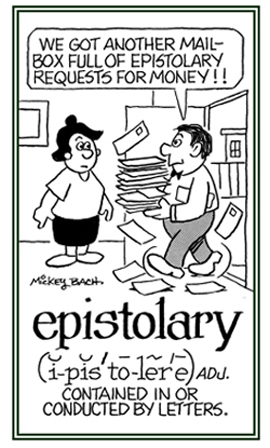
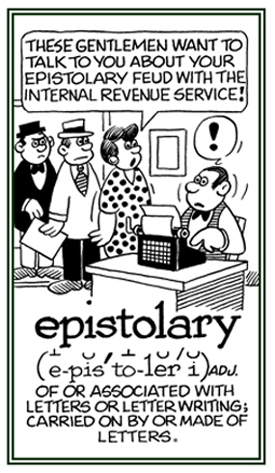
Go to this Word A Day Revisited Index
so you can see more of Mickey Bach's cartoons.
2. A short speech or piece of writing celebrating the life of a recently deceased person: "The politician was asked to read the epitaph that the newspaper editor had written honoring the local city mayor who had died last week."
"An elegy is also known as a commemoration or a memoir for someone who has passed on."
"Sometimes an epitaph is a monumental lie."
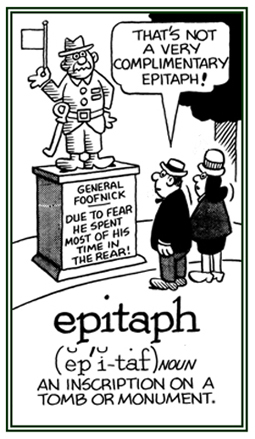
Go to this Word A Day Revisited Index
so you can see more of Mickey Bach's cartoons.
2. Sometimes a disparaging name: An "egghead" is an epithet for someone who is an intellectual.
Strictly speaking, an epithet is not necessarily a derogatory term, but it is commonly used as a simple synonym for some term of abuse or slur; such as, there is no place for racial epithets on the radio or TV programs.
3. Etymology: from epitithenai, "to add on"; from epi-, "in addition" + tithenai, "to put".

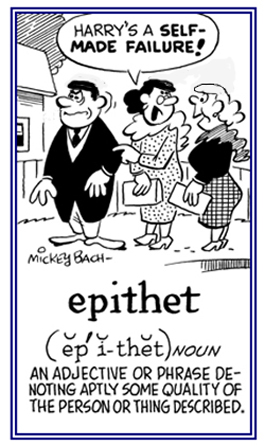
Go to this Word A Day Revisited Index
so you can see more of Mickey Bach's cartoons.
2. The embodiment or summation of certain qualities: Henry is the epitome of strength because he works out at the fitness studio as often as possible.
3. A person or thing which is representative of or typical of the characteristics or general quality of a whole class or group: Ted's car was once the epitome of low cost transportation.
4. Etymology: from Greek epitome, "abridgement"; from Latin epitome, "to cut short, to cut down, or to cut into".
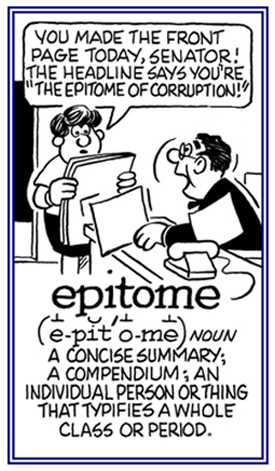
Go to this Word A Day Revisited Index
so you can see more of Mickey Bach's cartoons.
The doctor epitomized his patient's physical illness as being healable, and healthy again in two weeks.
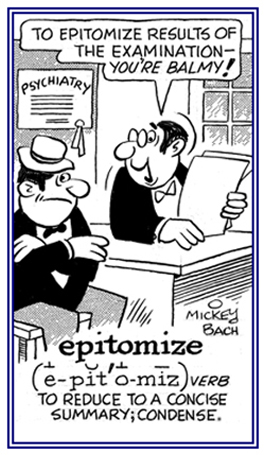
Go to this Word A Day Revisited Index
so you can see more of Mickey Bach's cartoons.
Related "above, over, beyond the normal, excessive" word units: hyper-; super-, supra-, sur; ultra-, ult-.


